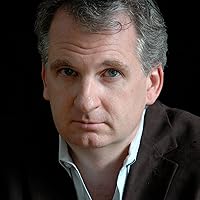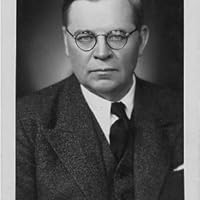Estonia Quotes
Quotes tagged as "estonia"
Showing 1-9 of 9
“When you’re talking about the culture, maybe there is something that just permeates sort of thing, you know you pass it on or take it in, without ever being aware of it. - Ivan Pavelić, Croatia”
― Suffering, Redemption and Triumph: The first wave of post-war Australian immigrants 1945-66
― Suffering, Redemption and Triumph: The first wave of post-war Australian immigrants 1945-66
“They worked hard all their lives, what they basically did was, they built a little Ukraine, a little society for themselves here in Brisbane. They did this in all the cities … not a ghetto, it wasn’t inward looking to that extent, but it was inward looking in the sense that it was a place to go—somewhere where you could identify; where you could be understood; go about remembering and preserving your roots. - Walter Sucharsky, 2nd Generation Australian”
― Suffering, Redemption and Triumph: The first wave of post-war Australian immigrants 1945-66
― Suffering, Redemption and Triumph: The first wave of post-war Australian immigrants 1945-66
“It would be easier to get a computer to cry than to get Estonians to share their innermost feelings.”
― Xenophobe's Guide to the Estonians
― Xenophobe's Guide to the Estonians

“Political calculation and local suffering do not entirely explain the participation in these pogroms. Violence against Jews served to bring the Germans and elements of the local non-Jewish populations closer together. Anger was directed, as the Germans wished, toward the Jews, rather than against collaborators with the Soviet regime as such. People who reacted to the Germans' urging knew that they were pleasing their new masters, whether or not they believed that the Jews were responsible for their own woes. By their actions they were confirming the Nazi worldview. The act of killing Jews as revenge for NKVD executions confirmed the Nazi understanding of the Soviet Union as a Jewish state. Violence against Jews also allowed local Estonians, Latvian, Lithuanians, Ukrainians, Belarusians, and Poles who had themselves cooperated with the Soviet regime to escape any such taint. The idea that only Jews served communists was convenient not just for the occupiers but for some of the occupied as well.
Yet this psychic nazification would have been much more difficult without the palpable evidence of Soviet atrocities. The pogroms took place where the Soviets had recently arrived and where Soviet power was recently installed, where for the previous months Soviet organs of coercion had organized arrests, executions, and deportations. They were a joint production, a Nazi edition of a Soviet text.
P. 196”
― Bloodlands: Europe Between Hitler and Stalin
Yet this psychic nazification would have been much more difficult without the palpable evidence of Soviet atrocities. The pogroms took place where the Soviets had recently arrived and where Soviet power was recently installed, where for the previous months Soviet organs of coercion had organized arrests, executions, and deportations. They were a joint production, a Nazi edition of a Soviet text.
P. 196”
― Bloodlands: Europe Between Hitler and Stalin

“Trīs māsas: Igaunija, Latvija un Lietuva ir darinājušas katra par sevi savas kultūras gredzenu. Ikkatrs no tiem laistās savā īpatā daiļumā.
Kārlis Skalbe”
―
Kārlis Skalbe”
―

“Eestimaa suvi alles algab. See on lühike, kuid lumevaene, nagu ütlevad soomlased.”
― Henrik : näidend kaheteistkümnes pildis
― Henrik : näidend kaheteistkümnes pildis
“For those countries not in Scandinavia or the Russian Federation, Estonia is perceived as part of Russia, or totally off the radar. Estonian soldiers who served in Iraq had a common complaint: no-one knew where they were from. Many of their American colleagues had never heard of Estonia or thought it was a mythical country. The Iraqis hadn't a clue either. One Estonian captain gave up - 'I told them I was from the moon,' he said.”
― Xenophobe's Guide to the Estonians
― Xenophobe's Guide to the Estonians
“Domestic animals come in two sorts - workers and pets. The working kind have a very belt and braces existence and are expected to earn their keep as guard dogs, rat cats, ornamental pub fish, etc. A 'pet' in Estonian is a lemmikloom (which means 'favourite animal') and a very much part of the family.”
― Xenophobe's Guide to the Estonians
― Xenophobe's Guide to the Estonians
“Teacher to Juku's mother: 'Your son is so thirsty of knowledge! Who does he get it from?'
'The knowledge from me, the thirst from his father.”
― Xenophobe's Guide to the Estonians
'The knowledge from me, the thirst from his father.”
― Xenophobe's Guide to the Estonians
All Quotes
|
My Quotes
|
Add A Quote
Browse By Tag
- Love Quotes 97k
- Life Quotes 75.5k
- Inspirational Quotes 72.5k
- Humor Quotes 43.5k
- Philosophy Quotes 29.5k
- Inspirational Quotes Quotes 27k
- God Quotes 26k
- Truth Quotes 23.5k
- Wisdom Quotes 23.5k
- Romance Quotes 23k
- Poetry Quotes 22k
- Death Quotes 20k
- Happiness Quotes 18.5k
- Life Lessons Quotes 18.5k
- Hope Quotes 18k
- Faith Quotes 18k
- Quotes Quotes 16.5k
- Inspiration Quotes 16.5k
- Spirituality Quotes 15k
- Religion Quotes 15k
- Motivational Quotes 15k
- Writing Quotes 14.5k
- Relationships Quotes 14.5k
- Life Quotes Quotes 14k
- Love Quotes Quotes 13.5k
- Success Quotes 13.5k
- Time Quotes 12.5k
- Motivation Quotes 12k
- Science Quotes 11.5k
- Knowledge Quotes 11k

